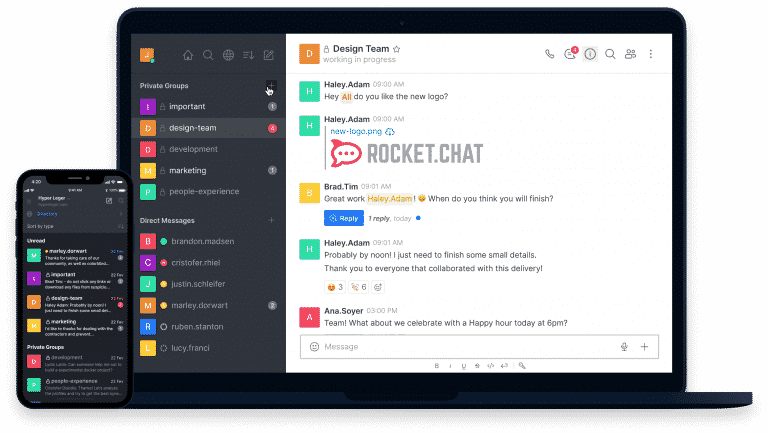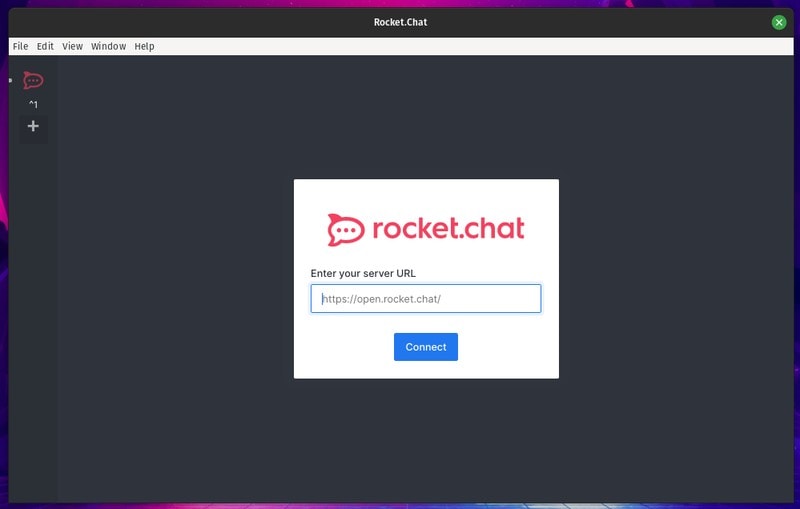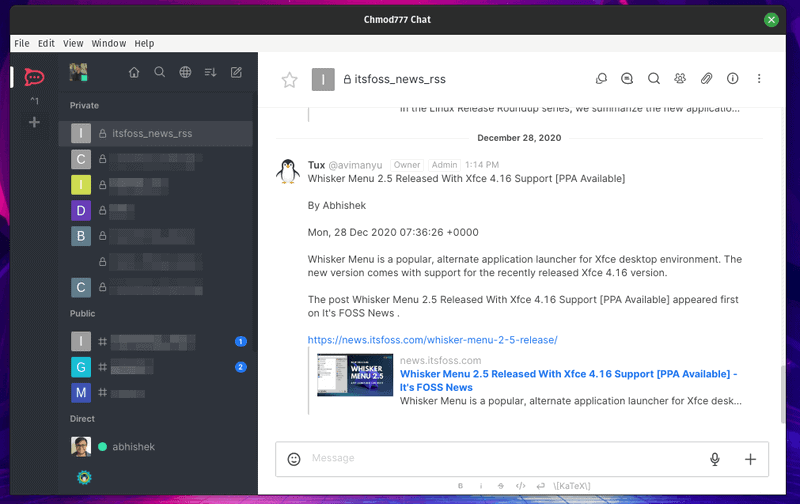
Slack is a useful and popular team communication app that potentially replaces emails for work. A lot of big and small teams use it, even we at It’s FOSS relied on Slack initially.
However, we needed a good open-source alternative to Slack and that’s when we came across Rocket.Chat. Sure, there are several other open-source slack alternatives, but we opted for Rocket.Chat for its similarity with Slack and ease of deployment.
Rocket.Chat: An Open Source Communication Platform

Rocket.Chat is an open-source communication platform for team collaboration.
You get all the essential features to facilitate proper communication along with the option to get started for free, opt for hosted service by the Rocket.Chat team or deploy it on your server.
You can totally customize as per your requirements when deploying it on your server. No matter what you choose to do, the feature-set is impressive.
Let us take a look at what it offers.
Features of Rocket.Chat

Rocket.Chat is a powerful and flexible team communication tool. Here’s what you can expect from it:
- Easy file sharing (drag and drop support)
- Audio file sharing support
- Video conferencing with Jitsi Meet integration
- Separate channels (private and public options)
- End-to-End encryption support
- Customize the theme of the service (including the ability to customize it)
- Guest access support
- Unlimited message history (depending on the storage of your server for self-managed setup)
- Broadcast channel support
- RSS Integration
- Several 3rd party app integration support
- White label (optional if you want a custom branding)
- Read receipt (Enterprise plan)
- Push notifications support
- Customizable user permission
- 24 x 7 Support (depending on the pricing plan)
- LiveChat integration support which you can add on your website
- Real-time translation
- Self-host support
- Cross-platform support (Windows, macOS, Android, iOS, and Linux)
In addition to all the key points mentioned above, there are a lot of little nifty features that should come in useful in Rocket.Chat.
Installing Rocket.Chat client on Linux
If you have a Rocket.Chat instance deployed or hosted by Rocket Chat itself, you can access it through web browser, desktop clients and mobile apps.
On Linux, Rocket.Chat is available as a snap and a Flatpak package. You can go through our guides on using snap or Flatpak on Linux to get started.
I would recommend installing it as a Flatpak (that’s how I use it) to get the latest version. Of course, if you prefer to use it as a snap package, you can go with that as well.
In either case, you can explore the source code on their GitHub page if you need.
My Thoughts on Using Rocket.Chat

I’ve been using Rocket.Chat for quite a while now (for our internal communication at It’s FOSS). Even though I was not the one who deployed it on our server, the documentation hints at a swift process to set it up on your server.
It supports automation tools like Ansible, Kubernetes, etc and also gives you the option to deploy it as a docker container directly.
You will find plenty of administrative options to tweak the experience on your instance of Rocket.Chat. It is easy to customize many things even if you are not an expert at self-managed projects.
Personally, I appreciate the ability to customize the theme (it is easy to add a dark mode toggle as well). You get all the essential options available on smartphone as well. Overall, it is indeed an exciting switch from Slack and it should be a similar experience for most of you.
What do you think about Rocket.Chat? Do you prefer something else over Rocket.Chat? Let me know your thoughts in the comments below.

